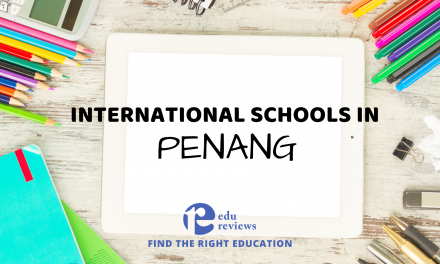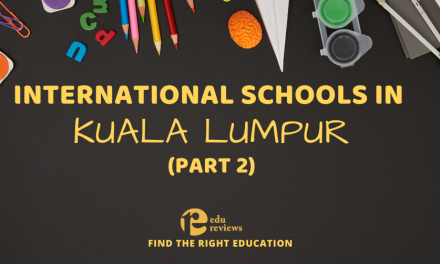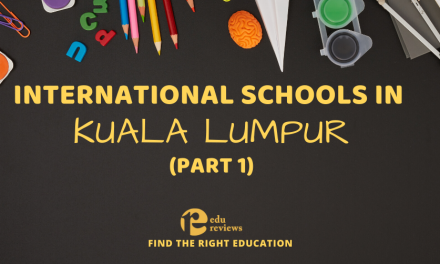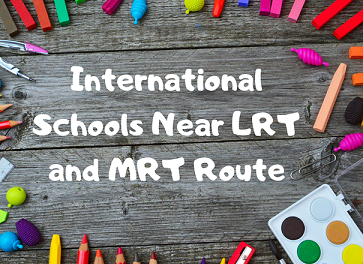“The top 10 in-demand jobs in the future don’t exist today. We are currently preparing students for jobs that don’t yet exist, using technologies that haven’t been invented, in order to solve problems we don’t even know are problems yet.” – Former US Secretary of Education Richard Riley in 2004
Studies show many jobs that exist today won’t be around by the year 2050. With technology changing at the speed of light, there’s simply no telling which current careers will endure and which ones will succumb to automation. So how are international schools preparing their students to thrive – both professionally and personally – in a job market that’s so uncertain?
Here’s just some of the great work taking place in our very own Malaysian international schools to ensure students are ‘future-ready’.
STEM Spaces

It is becoming more common for schools to have dedicated STEM (Science, Technology, Engineering, and Mathematics) spaces: flexible workrooms or labs full of equipment such as robotics gear, animation studios, film studio equipment, and design technology work spaces. MITstem International School’s Industry 4.0 Labs, Oasis International School’s STEM lab, International School of Kuala Lumpur’s ‘maker spaces,’ and Kingsgate International School’s ‘Innovation Lab’ are all examples of spaces that give children a chance to destruct and construct, design and build, renovate and innovate.
Coding

Some international schools are beginning to weave coding and computer science into their core curriculum, rather than having these as optional electives. At MITstem International School and Mont’ Kiara International School, for example, coding is compulsory for lower secondary year groups, in recognition of the fact that no matter their chosen career, coding will almost certainly be a useful asset.
Focus on Skills

Two key factors have dramatically impacted the way schools teach. Firstly, the omnipresence of Wikipedia and Google means that everyone has knowledge at their fingertips, so how much students know isn’t necessarily going to set them apart from the rest. Secondly, it’s generally accepted that most members of Generation Z (those born between 1995 and 2010) are likely to have a number of jobs during their working lives – not just one, as used to be the case.
What does this mean, and why does it matter? Well, while learning content is still important for today’s students, what’s even more important is building up a set of transferable skills which they will be able to employ across a range of contexts and situations. Soft skills – abilities such as communication, creativity, analytical thinking, and problem solving – are more in demand than ever before, a demand which is likely to increase.
Different international schools tackle the teaching of these skills in different ways, but it is accepted that a combination of knowledge and skills-teaching is crucial for children’s future success. In the best examples, skill-teaching is woven in through all subjects in the curriculum, across all grade levels. International schools offering the IB programmes are guided by the ‘IB Learner Profile’ which outlines 10 key learner attributes; other schools have designed their own bespoke lists of skills that they integrate into teaching and learning.
Real World Experiences

Many international schools should offer students a number of chances to ‘try out’ different careers so that they feel ready for life beyond school. Most commonly, they will offer ‘Work Experience Weeks’ to their Year 10 and/or Year 12 students, giving them the chance to experience working life in the real world, even if for only a few days.
Additionally, a number of schools are now thinking about how they can make these experiences even more valuable. Here in KL, Garden International School stands out for its unique month-long THRIVE internship programme, linked to each student’s proposed undergraduate course of study and is tightly connected to transferable skill development.
International schools with strong alumni networks also benefit from having their alumni regularly engage, share, and inspire their current students through talks, university preparation workshops, and other events. These connections help ensure students are more aware of what is to come and are thus more prepared for the future.
Wellbeing

All around the world, levels of youth anxiety, depression, and other mental health issues are rising to unprecedented levels. The reasons for this are complex, of course, but schools are very aware that unhappy, anxious young adults are unlikely to thrive and flourish, either personally or professionally.
In order to address this, more and more international schools really are stepping up their game with regards to supporting student wellbeing. They are talking more openly about mental health, hiring more specialist support staff, and making it much easier for their students to access support when they need it. A great example is ISKL, who has a team of six University Counsellors who support students on a one-to-one basis from Grade 9 (Year 10) right up until graduation and offer both pastoral and academic support and guidance. Moreover, in a number of other leading international schools now, students can access counselling and support either individually or in groups, at drop-in sessions or pre-arranged times, and they can even schedule support sessions via WhatsApp.
Ensuring students have access to quality support whenever they need it is crucial for their wellbeing, and at the end of the day, a happy and confident young adult will be prepared for whatever changes come their way.








